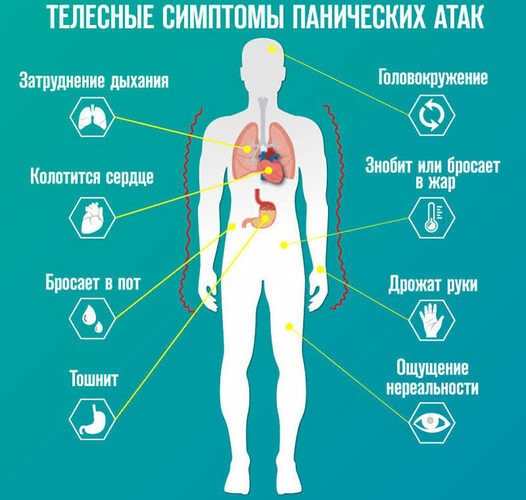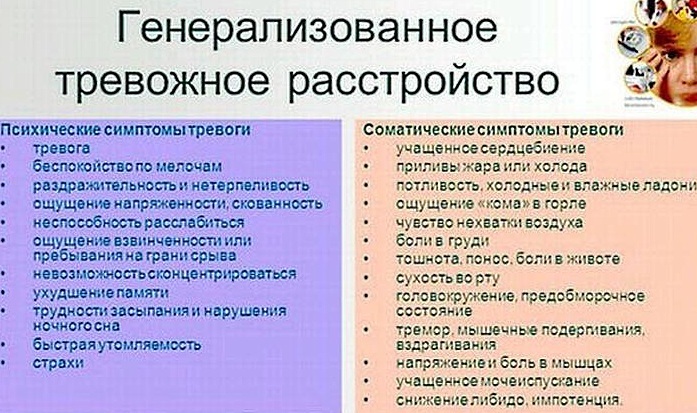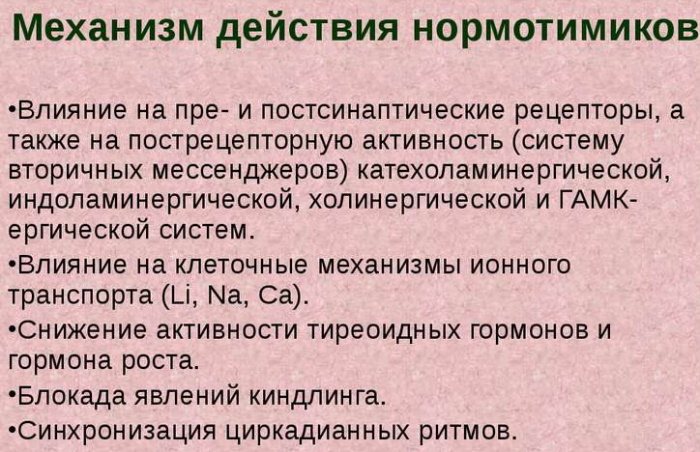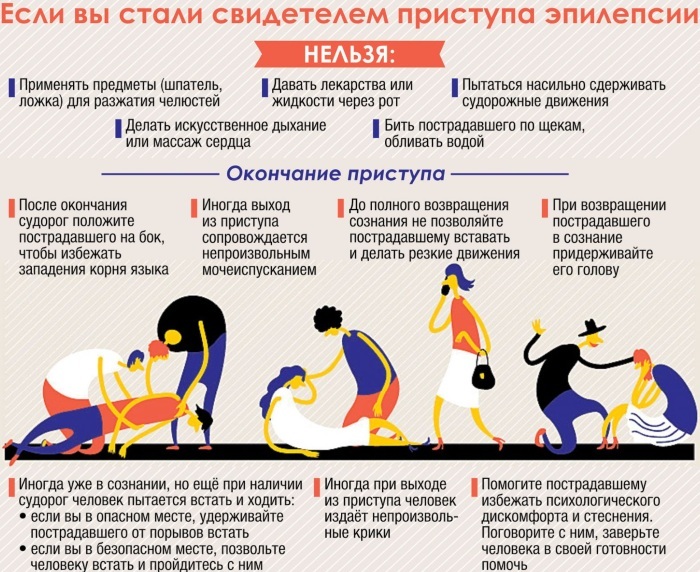Cope with uncontrollable bouts of fear, panic and anxiety, called panic attacks on their own is very difficult. panic attack syndrome does not arise spontaneously, and the reasons for disturbing the normal life of the symptoms can be identified and worked effectively only with a physician psychotherapist.
The content of the article:
- 1 What is a panic attack
- 2 Types of panic attack
- 3 Stage and grade of panic attacks
- 4 Symptoms of panic attacks
- 5 Causes of Panic Attacks
- 6 Diagnosis of panic attacks
- 7 When to see a doctor or psychologist
- 8 Prevention of panic attacks
-
9 Methods of treatment of panic attacks
- 9.1 Medications
- 9.2 Traditional methods
- 9.3 psychological methods
- 10 possible complications
- 11 Videos about panic attacks
What is a panic attack
Panic attacks are occasionally manifested anxiety characterized by sudden-onset episodes of anxiety and fear because of the stress. Intense anxiety and fear of panic attacks does not last long, an average of 10 minutes, but the symptoms are causing huge discomfort to man.
Panic attacks occur in humans is unpredictable; the patient feels the growing anxiety with fear to die or go mad.

On the physical level, panic attacks are accompanied by the following symptoms:
- increased sweating;
- heart palpitations;
- nausea;
- superatmospheric or subatmospheric pressures;
- dizziness.
Occurring physical reactions to anxiety absolutely normal, they are a response to stress, which occurs in humans for no reason and unexpectedly.
The origin of the emergence of fear for each person individually, but most often anxiety arises from the fear of death, anatofobii. Increased heart rate, breathing and other symptoms that can lead to loss of consciousness, or serious violations of the body, causing the feeling of fear for his life, that only reinforces the emerging panic.
It is also often a person feels anxiety state due to the fear of madness, loss of self-control. this phenomenon is called lissofobiey in psychiatric practice. The third most common cause of panic attack is the presence of the less common phobias, disorders and mental disorders.
Types of panic attack
In accordance with situational cause-specific, panic attacks can be divided into spontaneous situationally determined and conditionally situational.
| View Panic Attacks | Characteristic |
| spontaneous | The occurrence of spontaneous panic attacks than not explained, the patient may experience anxiety at any time, regardless of location or situation. Spontaneous panic attacks are diagnosed only after the therapist passed examination by other doctors |
| situationally caused | Situationally caused panic attacks occur only at certain times, which could be traumatic for the patient in the past. Certain situations may be associated with weathered severe stress, so their repetition provokes high anxiety |
| Conditionally situational | Related situational panic attacks are associated with a chemical or biological effect on the patient's body, which provide:
|
Stage and grade of panic attacks
Episode of a panic attack can be divided into several stages, depending on the symptoms manifestations of power:
- The initial stage is characterized by the gradual emergence of mild anxiety, dizziness, a slight tingling in the chest. Symptoms begin gradually increase.
- The main stage is characterized by an acute manifestation of physiological responses to stress. The patient is choking, nausea, severe dizziness, and other symptoms of a panic attack.
- The final phase is characterized by weakening of the symptoms; the patient wakes up, often falls into depression: a sense of apathy, indifference to everything and unwillingness to engage in any activity.

Stage and grade of panic attacks
Distinguish 2 degrees of panic attacks: a moderate, which is characterized by an average of 4 episodes per month and severe, characterized by 4 or more panic attacks a week.
Symptoms of panic attacks
To cope with panic attacks is possible if carefully study the mechanism of its formation, associated symptoms and the causes.
Symptoms most often occur when a panic attack:
- disruption of the heart, pronounced tachycardia;
- difficulty breathing;
- pain in the chest;
- high blood pressure;
- nausea;
- dizziness;
- sweating;
- incoordination;
- hot flushes or cold.

Symptoms of panic attacks
These symptoms are the body's physiological responses to a panic attack.
There are also psychological symptoms that reflect a state of mind at the time of panic disorder:
- increased anxiety;
- disorientation;
- feeling of unreality;
- a feeling of depersonalization (feeling that the situation is happening to someone else);
- loss of attention, concentration and the ability to structure the thoughts;
- partial loss of self-control.
Causes of Panic Attacks
Panic attacks can occur as a result of triggering or causal factors. Causal factors related to human physiological characteristics, genetic predisposition and the basis of bodily functioning.
These factors include:
- emotional instability, susceptibility;
- tendency to psychosomatic diseases resulting from the suppression of feelings and emotions that are expressed using bodily reactions;
- increased anxiety, insecurity and frequent feeling of stress.
Various combination of these factors often arises from the parent-child relationship, the parents towards the child to actively show their neurotic tendencies. Increased anxiety, overprotection, hypochondriacal, and other symptoms of unhealthy attitudes towards children form their development of neurosis, which often leads to panic disorders.

The issue of transfer of genetically neuroticism is still poorly understood, so it is impossible to pinpoint the causes of panic disorder. Despite this, some negative effects of the social environment is almost always reflected in the painful condition of the child in the future. Precipitating factors include emotional stress.
Frequent causes of stress which provoke the occurrence of panic attacks are:
- a break up;
- to terminate a pregnancy;
- anxiety for children;
- illness or death of someone close;
- conflicts in the family or at work.
Also, a panic attack can occur due to physical factors:
- sleep disorders;
- food poisoning;
- after the use of drugs or alcohol;
- after taking hormonal preparations;
- after strenuous exercise.
There are many incentives that can cause panic disorder, but more often it is the result of the interaction of both physiological and emotional factors.
Diagnosis of panic attacks
To cope with panic attacks will help correct and professional diagnosis of the disease, which must be conducted by an experienced psychotherapist. International Classification of Diseases classifies panic disorder to a group of "neurotic, stress-related and somatoform disorders."
From this it follows that the disease is a type of neurosis, and it should be diagnosed only by a psychotherapist.

There are standard criteria by which a doctor diagnoses a panic disorder:
- Panic attacks occur on average 3 times a month and are characterized by unpredictability.
- Anxiety is not related to certain situations, is a threat from an objective point of view.
- Anxiety does not arise because of physiological, neurological and psychiatric diseases.
- Panic attack lasts several minutes and is manifested symptoms gradually increasing intensity.
- Panic attacks are limited to a relatively quiet period, not including the anxiety associated with the fear of the emergence of a new attack.
When to see a doctor or psychologist
Coping with the symptoms caused by panic attacks, help timely access to the necessary medical attention. Patients are turning to specialists, when the symptoms begin to appear frequently and unpredictably, that It causes the human fear of the occurrence of the next attack and interfere with its normal life.

Patients often turn to physicians, cardiologists, gastroenterologists, but did not find the main problem of the occurrence of panic disorder. International Classification of Diseases classifies panic attacks to neurotic diseases that clearly indicates a single psychotherapist, the ability to diagnose and cure panic disorder.
Others have focused on the somatic abnormalities, may be useful in the diagnosis of the disease is only in order to avoid physiological abnormalities that could be the cause of attacks. Competence in the treatment of panic disorder has only a psychotherapist.
Prevention of panic attacks
To cope with panic attacks, namely, to avoid their repetition will help special preventive measures:
- Changing lifestyles. One of the most common factors contributing to the occurrence of panic disorder, is the use of alcohol and drugs, so you need to give up their negative for disease prevention influence.
- Recovery routines. Mental health is largely dependent on how much it spends energy resources and how to restore them. Healthy full sleep and promotes normal functioning of the somatic and psychological systems.
- Regular exercise. fitness classes for one hour to increase the concentration of endorphins in the blood several times, to help feel better and freer anxious person. Also through physical exercise can express their negative emotions, which contributes to their release and improve the mental state of the patient.
- Breathing exercises. Classes breathing exercises are very useful for the prevention of panic attacks: the breath affects the the nervous system, and special exercises are able to calm her down to prevent stress state.
- Hobby. Occupation interesting thing for myself always has a beneficial effect on the psyche and the nervous system. Hobbies and favorite work can significantly improve a person's state of health, which is related to minimal risk to be in a stressful situation, when it is necessary to overcome the internal resistance.
Methods of treatment of panic attacks
Panic attacks occur due to an increased level of anxiety, which the origins of each person individually. But the treatment of symptoms in all patients based on calming the nervous system, decreasing anxiety and stress. The main part of the treatment of panic attacks are medicines, but sometimes traditional methods used for the prevention and treatment of mild forms of the disease.
Psychological adjustment helps to identify hidden and repressed feelings, fears and phobias, and work through them, thereby reducing the symptoms exhibited.
Medications
To cope with panic attacks will help drugs, whose action is aimed at lowering the level of anxiety. Drugs are prescribed only by the attending physician therapist, who in accordance with the individual characteristics of the patient writes the necessary dosage of medication.

| Group Medicine | Features of the application and effect |
| Tranquilizers (clonazepam, phenazepam, oxazepam) | Drugs can quickly relieve the patient of symptoms of anxiety and are used at the beginning of treatment. Funds are not the only prescribed drugs; they are used in special and complex dosages with other antidepressants, it is associated with a probability of occurrence of the patient depending on tranquilizers |
| Antipsychotics (alimemazine, thioridazine, quetiapine) | Drugs should be used only during an acute attack of panic attacks that occur several times a week. This is due to the strong effect of drugs, which function only suppress anxiety, without getting rid of other symptoms. Antipsychotics differ in side effects in the form of lethargy, weakness and hormonal changes |
| Tricyclic antidepressants (imipramine, clomipramine) | Drugs used in small dosages when other antidepressants groups can not be included in the treatment. Medication often has the effect of part-time and is characterized by strong side effects such as disorders of the gastrointestinal tract, drowsiness and lethargy |
Traditional methods
During periods of frequent and severe panic attacks a positive impact on the human psyche can have a folk calming methods that do not cause side effects and addiction.

- Tea from mint. To prepare a soothing tea should brew 2 tbsp. l. mint and let it brew for about 2 hours. It is necessary to strain the infusion and take it one glass.
- Herbal 1. To prepare the collection of medicinal plants should be prepared 2 tsp peppermint, 2 tsp Watch a three-sheeted, 1 tsp valerian root and 1 tsp hop cones. Grind the cooked ingredients and mix them. From the resulting mass to take 2 tbsp and pour 500 ml of boiling water and let stand 30 min. After time the mixture was filter and take a 250 ml, 2 times a day.
- Herbal 2. To prepare the next collection requires 1 tsp tansy, 1 tsp calendula and 1 tsp oregano. Herbs need to chop and stir. The resulting mixture was added 500 ml of boiling water and allow the solution to infuse for 3 hours. Herbal necessary filter and take a 250 ml 3 times per day.
- Infusion of lemon balm. To prepare necessary to make 10 g dry lemon balm in 250 ml of boiling water. Infuse solution followed by 2 h, and after the time to take 2 pharynx 2 times per day.
- Herbal 3. To prepare a soothing collection needed 2 tsp mint leaves, 5 tsp stalks of oregano, 3 tsp valerian root, 5 tsp clover. Grass grind and mix, taken from the resulting mixture of 2 tablespoons and make them 500 ml of boiling water. Infuse herbal 2 hours, to filter it and take a 250 ml, 3 times a day before meals.
psychological methods
There are several methods of psychotherapeutic treatment of panic attacks:
- Cognitive-behavioral therapy. Therapy is considered the most effective in the treatment of panic attacks. Its course may last from 7 to 20 sessions, depending on the degree of severity of the disorder, and the patient's desire to work with your doctor. The therapist tries to explain to the patient his misperception of the world, because of which there is a feeling of unreasonable fear. Patient care as a result of studying the mechanisms of their feelings and learns to control anxiety.
- Psychoanalysis. Psychoanalytic approach sees the problem of occurrence of panic attacks in intrapersonal conflicts man. To recognize the internal conflict of the patient, the doctor uses a technique of projection and transference, and after identifying the necessary elements of unconscious conflict, he tries to show them to the patient. Patient care as a result of developing self-awareness, understanding and ability to analyze his motives. Thus he learns to control his emotions and to know the source of their origin.
- Transactional analysis. This approach seeks to identify the repressed and forgotten under the protection mechanism of childhood trauma patient. The doctor tries to understand the unmet needs of patients in childhood and by his form of therapy a sense of security and stability, which will further help the patient to resist the emergence of anxiety.
- Body-oriented therapy. Therapy includes self diagnostics and therapies, which are impact therapist hands on the patient's body. As a result of treatment, the patient learns to feel your body and listen to his responses to different influences. The patient is released from muscle clips, it begins to control your body, which helps him in the future to prevent the symptoms of a panic attack.
possible complications
Panic attacks can happen to a person in a particularly stressful situations, and this is a normal response of the body. If panic attacks are regular, then the patient should consult a specialist and do not expect to recover without treatment.

Possible complications in the absence of a proper course of treatment due to constantly progressing panic disorder:
- increased seizure frequency;
- periods between panic attacks differ depressive state, apathy;
- the person suffers from headaches and dizziness;
- the patient begins to suffer disorders of the gastrointestinal tract, the cardiovascular system;
- It felt clouding of consciousness, lower concentration;
- sick feeling of unreality of what is happening;
- the patient is disturbed communication skills and social activity.
Subsequently, the patient feels a constant concern; he develops hypochondria because of the constant fear of losing control, dying. Neurotic disorders component begins to manifest itself in the form of autonomic dysfunction, despite the fact that the very physical diseases in humans are observed.
Deviations are beginning to bear the chronic nature, because of which the patient falls into a very depressed state.
Coping with panic disorder, which is characterized by bouts of anxiety and fear, is only possible with proper combined treatment by a doctor psychotherapist. Panic attacks during the early stages of development are easy to care, so notice the first signs of the disorder people need to see a specialist as soon as possible for the qualified help.
Videos about panic attacks
How to cure panic attacks:
Author: Anna Fleyman



